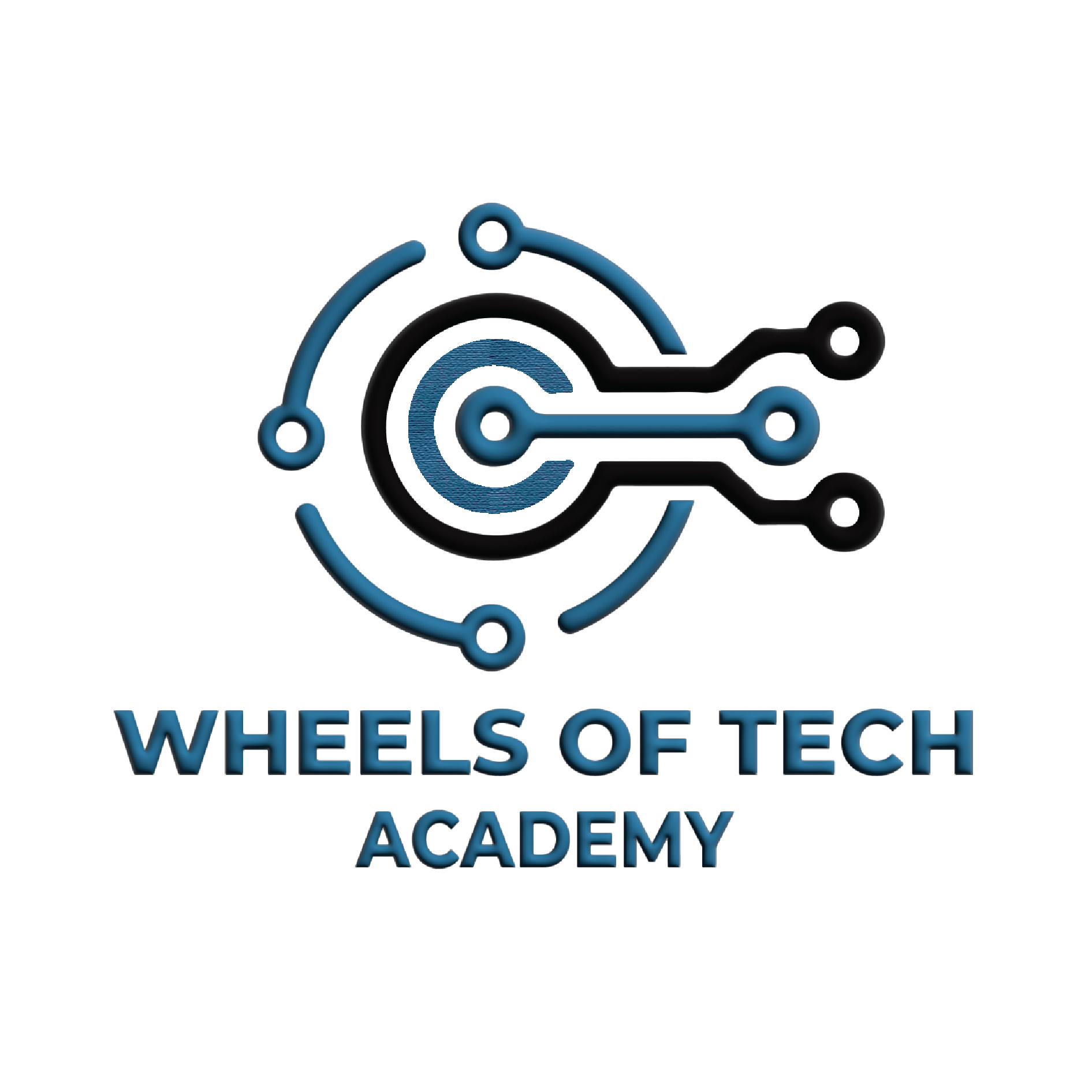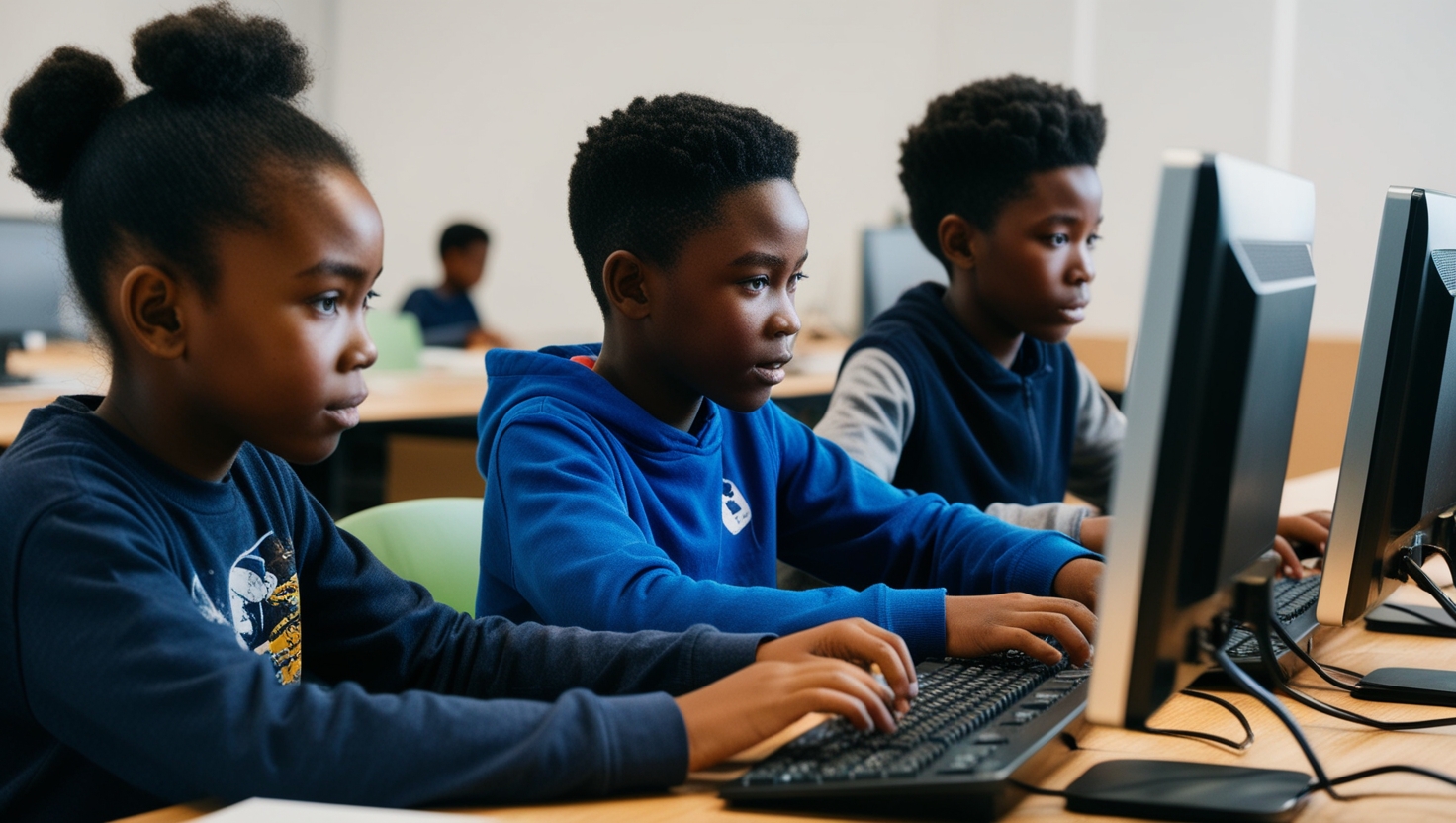Modules
Introduction to Computers has many benefits including:
-
Enhanced Problem-Solving Skills
Learning to use computers involves troubleshooting and resolving technical issues, which improves your ability to think critically and solve problems effectively.
-
Increased Efficiency
Computers streamline tasks such as data processing and document creation, allowing you to complete work faster and with greater accuracy, leading to higher productivity.
-
Improved Communication
With computers, you can use email, instant messaging, and video conferencing to communicate quickly and effectively, enhancing both personal and professional interactions.
-
Access to Information
Computers provide access to the internet, where you can find a vast amount of information and resources, supporting research, education, and personal knowledge.
-
Career Opportunities
Proficiency in computer skills is crucial in many careers. Understanding how to use various software and applications opens up job opportunities in numerous fields, from technology to business.
-
Creativity and Innovation
Computers enable creative activities such as graphic design, video editing, and programming. They provide tools for developing innovative ideas and projects in various artistic and technical domains.
-
Data Management
Managing data efficiently is made easier with computers. Skills in data organization, analysis, and storage are valuable for both personal use and professional tasks.
-
Learning and Education
Educational software and online platforms enhance learning experiences. Computers offer interactive and multimedia resources that can make studying more engaging and effective.
-
Problem Prevention and Security
Understanding computer systems helps in recognizing and preventing potential security threats. Knowledge of cybersecurity practices helps protect personal and sensitive information.
-
Automation of Routine Tasks
Computers can automate repetitive tasks, such as scheduling and data entry, reducing manual effort and minimizing errors, allowing more focus on strategic activities.
-
Personal Empowerment
Being proficient with computers enables you to manage personal tasks like online banking, shopping, and file management more effectively, boosting confidence and independence.
-
Collaboration and Networking
Computers facilitate collaboration through tools like shared documents and project management platforms. They also support professional networking and teamwork across geographical boundaries.
-
Access to Entertainment and Leisure
Computers offer a variety of entertainment options, including games, movies, music, and social media, providing relaxation and enjoyment in various forms.
Learning about computers enhances problem-solving skills, increases efficiency, improves communication, and opens up career opportunities while supporting creativity, data management, and personal empowerment.
Learning Internet Basics has a lot of benefits such as:
- Better Navigation: Easily find information using search engines and web browsers.
- Improved Communication: Use email, social media, and messaging apps to stay connected.
- Access to Resources: Find and use online tools and educational materials.
- Increased Safety: Protect your personal information and avoid online scams.
- Effective Research: Search for and understand online information better.
- Smart Shopping: Shop online safely and find what you need more easily.
- Time Management: Use online tools to organize and manage your tasks.
- Digital Skills: Build a foundation for using new technologies and online services.
- Problem-Solving: Learn how to fix common internet issues on your own.
- New Opportunities: Open doors to work, learning, and personal growth online.
Learning internet basics helps you find information easily, communicate effectively, access valuable resources, stay safe online, and conduct smart research and shopping. It also improves your time management, builds digital skills, enhances problem-solving abilities, and opens up new opportunities for work and personal growth.
Learning Scratch offers numerous benefits for kids, helping them develop a variety of skills and knowledge. Here are some key advantages:
-
Foundational Coding Skills:
Scratch introduces basic programming concepts such as loops, conditionals, variables, and event handling in a visual and interactive way, making it easier for kids to grasp these concepts.
-
Creativity and Imagination:
Scratch encourages kids to create their own interactive stories, games, and animations, fostering creativity and allowing them to express their ideas in unique ways.
-
Problem-Solving Skills:
Kids learn to break down complex problems into smaller, manageable parts and find solutions through debugging and iteration, enhancing their logical thinking and problem-solving abilities.
-
Collaboration and Social Skills:
Scratch has a strong online community where kids can share their projects, receive feedback, and collaborate with others, helping them develop social skills and learn from their peers.
-
Confidence and Persistence:
As kids see their ideas come to life and successfully create projects, their confidence grows. They also learn the importance of persistence, as they may need to overcome challenges and errors in their code.
-
Introduction to STEAM Education:
Scratch integrates elements of Science, Technology, Engineering, Arts, and Mathematics (STEAM), providing a multidisciplinary approach to learning and sparking interest in these fields.
-
Accessibility and Fun:
Scratch is designed to be user-friendly and engaging, making learning to code fun and accessible for kids of all ages and backgrounds.
-
Preparation for Future Learning:
The skills and concepts learned in Scratch provide a solid foundation for more advanced programming languages and computer science education in the future.
By learning Scratch, kids not only gain valuable technical skills but also develop important cognitive and social skills that will benefit them in various aspects of their lives.
Learning web design offers a range of benefits, especially for kids who are growing up in a digital age. Here are some of the key advantages:
-
Creativity and Artistic Skills:
Web design allows kids to express their creativity through designing visually appealing and functional websites. They learn about colour theory, typography, layout, and other design principles.
-
Technical Skills:
Kids gain familiarity with essential web technologies such as HTML, CSS, and JavaScript, which are the building blocks of web development. They also learn to use various web design tools and software.
-
Problem-Solving and Logical Thinking:
Designing a website involves structuring content, organizing navigation, and ensuring a good user experience. Kids learn to approach these tasks methodically, enhancing their problem-solving and logical thinking skills.
-
Attention to Detail:
Web design requires a keen eye for detail, as even small errors in code can affect the website’s appearance and functionality. This attention to detail can carry over into other areas of learning and life.
-
User-Centered Thinking:
Kids learn to think from the perspective of the end-user, considering usability, accessibility, and user experience (UX) design. This user-centered approach is valuable in many fields.
-
Project Management Skills:
Creating a website from scratch involves planning, organizing, and managing different aspects of the project. Kids learn to set goals, meet deadlines, and manage their time effectively.
-
Collaboration and Communication:
Web design projects often involve teamwork. Kids learn to communicate their ideas, collaborate with others, and give and receive constructive feedback.
-
Digital Literacy:
Understanding how websites are built enhances kids' overall digital literacy, helping them navigate and understand the online world better.
-
Career Preparation:
Web design skills are highly valuable in today’s job market. Early exposure can spark an interest in pursuing further education and careers in web development, graphic design, digital marketing, and related fields.
-
Sense of Achievement:
Seeing a project come to life and being accessible on the internet gives kids a sense of accomplishment and boosts their confidence.
Web design can be an engaging and rewarding way for kids to develop a broad range of skills that will be useful both in their personal and professional lives.
Learning Python offers many benefits for kids, making it an excellent choice for their first programming language. Here are the main advantages:
-
Easy to Learn:
Python has simple and easy-to-read syntax, making it an ideal language for beginners. Kids can start writing their own programs quickly.
-
Versatile Language:
Python can be used for many different projects, such as creating games, building websites, analysing data, and even controlling robots.
-
Building Games:
Kids can use Python to create their own games. This makes learning fun and engaging as they see their creations come to life.
-
Web Development:
Python can be used to build websites and web applications, helping kids understand how the internet works.
-
Data Analysis:
Python is great for working with data, making it useful for school projects, science fair experiments, or just exploring interesting data sets.
-
Problem-Solving Skills:
Programming with Python helps kids think logically and solve problems in a step-by-step manner, a skill valuable in many aspects of life.
-
Community and Resources:
There are many tutorials, books, and online communities that offer help and support, making it easier for kids to learn and improve.
-
Confidence and Creativity:
Completing projects and solving coding challenges boosts kids' confidence and allows them to express their creativity.
-
Future Opportunities:
Python is widely used in many industries, so learning it can open up future career opportunities in fields like web development, data science, artificial intelligence, and more.
In summary, learning Python helps kids build games, websites, and data projects while developing problem-solving skills and creativity, all of which can lead to exciting future opportunities.
Learning data analysis offers many benefits for kids, helping them develop important skills for their future. Here are the main advantages:
-
Understanding Data:
Data analysis helps kids learn how to make sense of information. They can take raw data, like numbers and facts, and turn it into useful insights.
-
Problem-Solving Skills:
By analyzing data, kids learn to identify problems, ask questions, and find solutions. This improves their critical thinking and problem-solving abilities.
-
Mathematical Skills:
Data analysis involves working with numbers, which helps kids improve their math skills, such as addition, subtraction, multiplication, division, and understanding statistics.
-
Making Informed Decisions:
Kids learn how to use data to make better decisions. This skill is useful in everyday life, whether it's planning a project, making purchases, or understanding trends.
-
Using Tools and Software:
Kids get to use different tools and software for data analysis, like spreadsheets (Excel, Google Sheets) and programming languages (Python, R). This gives them hands-on experience with technology.
-
Visualizing Data:
Data analysis often involves creating charts, graphs, and other visualizations to present information clearly. This helps kids learn how to communicate their findings effectively.
-
Project-Based Learning:
Kids can work on real-world projects, like analyzing sports statistics, survey results, or school performance data. This makes learning relevant and engaging.
-
Future Career Opportunities:
Data analysis skills are in high demand in many fields, such as business, science, technology, healthcare, and more. Learning these skills early can open up exciting career opportunities.
-
Attention to Detail:
Analyzing data requires careful attention to detail to ensure accuracy. This helps kids develop precision and thoroughness in their work.
-
Confidence and Empowerment:
Successfully analyzing data and drawing conclusions gives kids confidence in their abilities and empowers them to tackle complex problems.
-
Collaboration and Teamwork:
Data analysis projects often involve working in teams. Kids learn to collaborate, share ideas, and contribute to group efforts.
In summary, learning data analysis helps kids understand and work with information, improve their math and problem-solving skills, make informed decisions, and prepare for future career opportunities, all while boosting their confidence and ability to collaborate with others.
Learning entrepreneurship at a young age can offer several benefits for kids:
- Critical Thinking and Problem-Solving Skills: Entrepreneurship encourages kids to think creatively and find solutions to problems, fostering critical thinking abilities.
- Financial Literacy: Understanding concepts like budgeting, profit, and loss from an early age can help kids develop strong financial skills.
- Creativity and Innovation: Entrepreneurship often involves coming up with new ideas and innovations, nurturing creativity in children.
- Resilience and Risk Management: Learning to handle failure, take risks, and bounce back from setbacks are crucial skills taught through entrepreneurship.
- Communication and Collaboration: Entrepreneurs need to communicate effectively and work well with others, enhancing social and collaborative skills.
- Self-Confidence: Successfully executing entrepreneurial projects can boost self-esteem and confidence in kids.
- Goal Setting and Planning: Setting goals, creating plans, and executing them are fundamental aspects of entrepreneurship that teach kids valuable organizational skills.
- Real-World Application: Entrepreneurship education often involves practical, real-world applications, preparing kids for future careers and life challenges.
Overall, learning entrepreneurship empowers kids to be proactive, creative problem-solvers with a strong sense of initiative and independence.
Learning finance offers several benefits for kids:
- Financial Literacy: Understanding concepts like budgeting, saving, investing, and debt management equips kids with practical knowledge they can apply throughout their lives.
- Responsible Money Management: Learning about finance helps kids develop responsible spending habits and understand the consequences of financial decisions.
- Critical Thinking: Finance education involves analyzing options, making informed choices, and evaluating risks, fostering critical thinking skills.
- Math Skills: Managing money requires basic arithmetic and more advanced math skills as kids learn about interest, percentages, and financial calculations.
- Future Planning: Financial education encourages kids to think about their future goals and how to achieve them financially, promoting long-term planning skills.
- Decision-Making Skills: Making financial decisions involves weighing options, considering trade-offs, and prioritizing needs versus wants, which enhances decision-making abilities.
- Entrepreneurship and Innovation: Understanding finance can inspire entrepreneurial ideas and innovation as kids grasp economic principles and market dynamics.
- Confidence and Independence: Financial knowledge empowers kids to make confident, independent financial choices and navigate financial challenges effectively.
Overall, learning finance at a young age sets a strong foundation for financial well-being, responsible citizenship, and economic empowerment throughout their lives.



